
Babylon 5 is an American space opera television series created by writer and producer J. Michael Straczynski, under the Babylonian Productions label, in association with Straczynski's Synthetic Worlds Ltd. and Warner Bros. Domestic Television. After the successful airing of a test pilot movie on February 22, 1993, Babylon 5: The Gathering, Warner Bros. commissioned the series for production in May 1993 as part of its Prime Time Entertainment Network (PTEN). The show premiered in the US on January 26, 1994, and ran for five 22-episode seasons.

Galaxy Quest is a 1999 American satirical science fiction comedy film directed by Dean Parisot and written by David Howard and Robert Gordon. It stars Tim Allen, Sigourney Weaver, Alan Rickman, Tony Shalhoub, Sam Rockwell, and Daryl Mitchell. A parody of and homage to science-fiction films and series, especially Star Trek and its fandom, the film depicts the cast of a fictional cult television series, Galaxy Quest, who are drawn into a real interstellar conflict by aliens who think the series is a documentary.

In fiction, "redshirt" is an informal term for a stock character who is killed off shortly after being introduced. The term often implies that said character was introduced for the sole purpose of being killed off while adding little else to the story, and is sometimes used pejoratively to point out a redshirt's lack of good characterization or the obviousness of their incoming demise. Redshirt deaths are often used to emphasize the potential peril faced by more important characters.
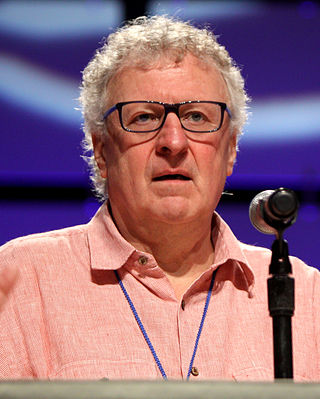
Peter Jurasik is an American actor known for his television roles as Londo Mollari in the 1990s science fiction series Babylon 5 and Sid the Snitch on the 1980s series Hill Street Blues and its short-lived spinoff Beverly Hills Buntz. Peter Jurasik also portrayed Oberon Geiger, Diana's boss, in the T.V. series Sliders.
"Midnight on the Firing Line" is the first episode of the first season of the science fiction television series, Babylon 5, following the pilot movie, "The Gathering". It first aired on January 26, 1994. It was notable for being the first regular television episode which used computer-generated imagery rather than physical models for its special visual effects. The episode also marked the beginning of the first science fiction television series where the entire series had an overarching storyline, which the writer J. Michael Straczynski described as "a novel for television".
"Born to the Purple" is the third episode of the first season of the science fiction television series, Babylon 5. The episode deals with Centauri ambassador, Londo Mollari, having important files on him stolen by his lover, Adira Tyree.
"The War Prayer" is the seventh episode of the first season of the science fiction television series, Babylon 5. It first aired on 9 March 1994.
"The Coming of Shadows" is a key episode from the second season of the science fiction television series Babylon 5. It won the 1996 Hugo Award for Best Dramatic Presentation.
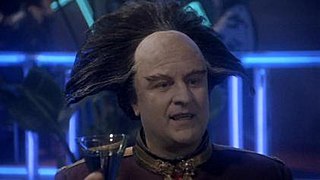
Londo Mollari is a fictional character in the universe of the science fiction television series Babylon 5, played by Peter Jurasik.
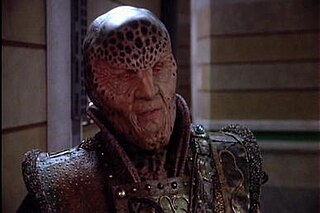
G'Kar is a fictional character in Babylon 5 played by Andreas Katsulas. He is a Narn and initially appears as a villainous diplomat opposite Londo Mollari, being constantly engaged in insidious, if petty, and often comical schemes. He is usually driven by his hostility to his people's historical enemies the Centauri, whom Londo represents. Over the course of the series, he is transformed into a Messianic figure and the foremost spiritual leader of his people.

Babylon 5: The Gathering is the test pilot movie of the science fiction television series Babylon 5, aired on February 22, 1993. It is also the first of six feature-length films in the Babylon 5 media franchise.
As the Babylon station was conceived as a political and cultural meeting place, one of the show's many themes is the cultural and social interaction between civilizations. There are five dominant civilizations represented on Babylon 5: humans, the Narn, the Centauri, the Minbari and the Vorlons; and several dozen less powerful ones. A number of the less powerful races make up the League of Non-Aligned Worlds, which assembled as a result of the Dilgar War, which occurred 30 years before the start of the series.
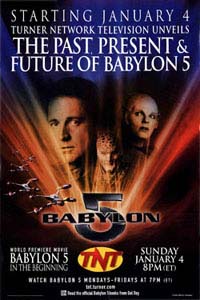
Babylon 5: In the Beginning is a 1998 American made-for-television film set in the Babylon 5 fictional universe. It was written by J. Michael Straczynski and directed by Michael Vejar. The film originally aired on January 4, 1998 on the TNT cable network, a couple of weeks before the fifth season of the series began.
St. Pius X Preparatory Seminary was the minor seminary of the Diocese of Rockville Centre. It was founded in 1961 and closed in 1984.
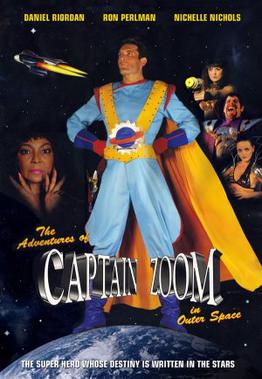
The Adventures of Captain Zoom in Outer Space is a 1995 science fiction/comedy television film.

Ancient astronauts have been addressed frequently in science fiction and horror fiction. Occurrences in the genres include:
The following outline is provided as an overview of and topical guide to Star Trek:










